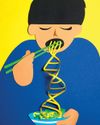
This year saw the hottest start to June on record, the arrival of increasingly normal hosepipe bans in the UK and water infrastructure being targeted in the war. As Russia-Ukraine things heat up, aquifers shrivel for instance, London's 90-day supply of water means the city is never far from having its taps run dry. That's Day Zero: a benchmark that several cities around the world have come alarmingly close to - or, in some cases, already reached in the last decade. Priti Parikh, professor of infrastructure engineering and international development at University College London, discusses the looming threat of Day Zero and how household tricks and national innovations offer promising solutions.
What is Day Zero?
Day Zero is the countdown to when a city or location runs out of water. The term was coined initially in South Africa, in Cape Town, where there was a water crisis in 2018. The city, which had four million people, was at risk of being left without water, and this led to a series of campaigns and restrictions on water use. In January 2018, for example, Cape Town declared water restrictions of 870 per person per day and later decreased it to 500 per day. The actual Day Zero was estimated to happen in April or Maythere were complicated calculations around the exact date because the city is dependent on water from six dams.
But luckily it rained, and Day Zero didn't happen. It's quite striking that a city of four million residents was left at the mercy of rains.
What would Day Zero look like?
Bu hikaye Very Interesting dergisinin Issue 73 sayısından alınmıştır.
Start your 7-day Magzter GOLD free trial to access thousands of curated premium stories, and 9,000+ magazines and newspapers.
Already a subscriber ? Giriş Yap
Bu hikaye Very Interesting dergisinin Issue 73 sayısından alınmıştır.
Start your 7-day Magzter GOLD free trial to access thousands of curated premium stories, and 9,000+ magazines and newspapers.
Already a subscriber? Giriş Yap

COVID inquiry: What did we learn and what can we do better in future pandemics?
Masks, social distancing, lockdowns... how effective was the UK's response to the COVID-19 pandemic?

One hormone could be the key that unlocks a cure for morning sickness
The nausea and vomiting that, in extreme cases, can endanger mothers and babies might soon be just a memory

THE WORLD'S WEIRDEST CREATURES
Under the sea and upon the land, some animals look - to us - pretty strange...

WHEN MIND AND MACHINE COLLIDE
First, Elon Musk wanted to make electric cars ubiquitous, then he wanted to make space exploration a private enterprise. Now, with Neuralink, his newest venture, Musk hopes to merge humans and artificial intelligence. Turns out, it might not be such a crazy idea...

Genius dogs know tens of toys by name, but truly gifted canines know over 100
If your pooch can retrieve its toys by name rather than chewing them to pieces, you may have a genius on your hands

THE BROKEN MIRROR
Body dysmorphia - the all-consuming obsession with perceived flaws in our looks - is sweeping the globe. One in five young people is thought to be affected. What can be done and how is tech changing the way we see ourselves?

INDOOR AIR POLLUTION: HOW COOKING CAN DAMAGE YOUR DNA
From roast dinners to scented candles, there are potentially harmful pollutants lurking in every home

CAN SCIENCE TURN A NIGHT OWL INTO A MORNING LARK?
If you're a night owl, you probably have a hard time dealing with a world that starts at 8am. But can science help you tinker with your body clock to make it easier to rise with the larks?

THE MOST COLOURFUL SIGHTS ON EARTH
Long-distance travel is lovely, but it saves a bit of cash if we bring some of the planet's most spectacular natural places to you

DO YOUR GENES INFLUENCE YOUR TASTE IN FOOD?
How DNA plays a role in shaping your menu choices